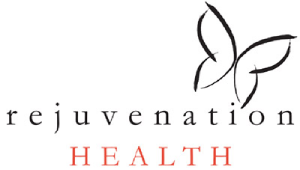- Mouth tape for sleep
- Benefits of mouth taping
- How to stop mouth breathing
- Best mouth tape for sleeping
What is Mouth Taping?
Mouth taping is exactly how it sounds. It involves taping the mouth shut at night to promote breathing through the nose instead of through the mouth. If you are a mouth breather, sleep mouth tape is a tool to help you learn and practice nose breathing.
Is mouth taping dangerous? Mouth taping is safe and low risk, as long as you use the correct kind of tape. Using a porous tape is necessary so you can still breathe through your mouth if needed. Mouth taping may be uncomfortable and take some getting used to. I don’t recommend mouth tape for infants or children.
How long Does it Take for Mouth Taping to Work?
Does Mouth Tape Help with Clenching?
Jaw clenching at night may be a sign of bruxism, that I’ll discuss more below. Likely, many factors contribute to clenching, but one of them may be the body’s attempt to get more air into the lungs.
Benefits of Mouth Taping
Reduces Snoring and Sleep Apnea Symptoms
Mouth breathers are more likely to snore and have sleep apnea compared to those who breathe through their nose. If you snore through your nose, mouth tape for snoring is less likely to help.
One small study in patients with mild obstructive sleep apnea suggests mouth taping is beneficial. Participants used 3M mouth tape and monitored their sleep at home using a device. After one week, 13 of the 20 participants demonstrated a positive response, with a 50% reduction in snoring and decreased sleep apnea symptoms.
Improve Sleep Quality
Raise Energy Levels
If you have better sleep and more oxygen to your brain at night because of a taped mouth, energy levels tend to improve. You may get more restorative benefits from sleep and be less tired throughout the day. You’ll have more energy for exercise, healthy eating, and other wellness behaviors.
Prevent Bruxism
Bruxism is involuntary and excessive teeth grinding. It may also involve jaw clenching or TMJ issues. Bruxism can lead to wear, sensitivity, and pain in the teeth and jaw.
While bruxism is multifactorial, in some cases, it may be the body’s attempt to increase airflow in passageways. Functional medicine approaches for bruxism include improving sleep hygiene and relaxation techniques. In some cases, mouth taping is helpful.
Alleviate Anxiety
There isn’t direct research looking at mouth taping and anxiety, but research suggests that mouth taping improves cognitive function in mouth breathers. Because everything in the body is connected, better sleep and enhanced oxygen to the brain may be helpful for anxiety.
Limit Mouth Dryness
Mouth breathing is problematic for oral health. It leads to dry mouth, bad breath, and undesirable changes to the oral microbiome. Therefore, mouth breathing can cause periodontal disease and cavities. Mouth taping is a low risk and often effective solution.
Best Mouth Tape for Sleeping
So, what’s the best mouth tape for sleep? There are several options on the market explicitly designed with a porous tape that is safe to use over the mouth, allowing for airflow.
How to tape mouth for sleep:
All mouth tape brands work the same. Relax your lips and place tape over the upper and lower lips. Breathe normally through your nose. It may take a few nights to get the hang of it.
Somnifix
Hostage Mouth Tape
3M Mouth Tape
Dryft Sleep
Myotape
Myotape mouth tape is a bit different than the other options as it doesn’t go over the lips. It goes around the lips to encourage you to keep your mouth closed and breathe through your nose. The company also offers an option for children.
Whether you choose Myotape, Somnifix mouth tape, or another option that works for you, the benefits are the same: improved sleep, breathing, and oral health. Ready to dive more into sleep, oral health, and overall health? Schedule a consultation today.
References
- Lee, Y. C., Lu, C. T., Cheng, W. N., & Li, H. Y. (2022). The Impact of Mouth-Taping in Mouth-Breathers with Mild Obstructive Sleep Apnea: A Preliminary Study.Healthcare (Basel, Switzerland), 10(9), 1755.
- Lal, S.J., Weber, D.D.S. K.K. Bruxism Management. [Updated 2022 Oct 12]. In: StatPearls [Internet]. Treasure Island (FL): StatPearls Publishing; 2023 Jan-.
- Jung, J. Y., & Kang, C. K. (2021). Investigation on the Effect of Oral Breathing on Cognitive Activity Using Functional Brain Imaging.Healthcare (Basel, Switzerland), 9(6), 645.




